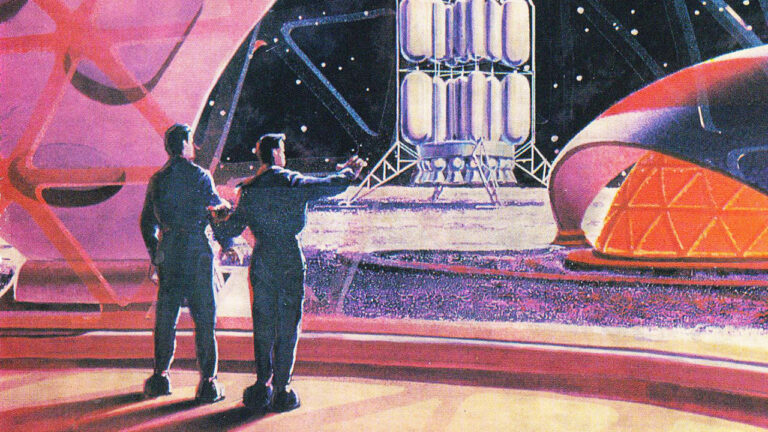
A short guide to Science Fiction
Article by Kieran Burt.
Science fiction (sci-fi) is a hugely popular genre within entertainment, proliferating TV, film, and videogames. Yet there’s little consensus about what the genre is, and many people don’t know how far the genre stretches back. Sci-fi is a genre that many know when they see it, but doesn’t have a definition. This article won’t offer a concrete definition, but instead will explore some of the proposed definitions, the history of the genre, and some key sci-fi properties.
As mentioned, sci-fi is hard to define. Turning to the Oxford Dictionary, it defines sci-fi as such: “a type of book, film, etc. that is based on imagined scientific discoveries of the future, and often deals with space travel and life on other planets” Though this definition isn’t complete. For example, the definition ignores sci-fi that happens on Earth, and the social change that’s explored alongside it. There is a lot of disagreement about what sci-fi is, with one text compiling 33 different and contradictory definitions. Some have decided to forgo a definition entirely, and simply point to the usefulness of sci-fi to explore contemporary fears and social injustices. Instead of a one size fits all definition, others have adopted for naming common characteristics across the genre such as a future setting, a marvellous device, a utopian (or dystopian) society, an alien creature, a twist in time or an interstellar journey.
This web of characteristics points to the fact that sci-fi isn’t just one genre, it’s in fact an umbrella term encompassing many different genres. Some notable sub genres of sci-fi include steampunk, cyberpunk, military sci-fi, Afrofuturism and space opera. To add one more way sci-fi is categorised, there is hard sci-fi, which involves details arising from the hard sciences, such as physics and chemistry, and often shows precise technologies that are yet to be advanced. Soft sci-fi is based in the social sciences, such as sociology and politics. An example of a hard sci-fi property would be Star Trek, whereas an example of soft sci-fi would be Star Wars.
One final point worth addressing is the difference between sci-fi and fantasy. Both genres involve speculative fiction based in highly imagined settings, but there are differences. A key one is that sci-fi explores what is possible, though is improbable. Fantasy explores what is impossible. Other differences include sci-fi adhering to the laws of nature, and often authors of sci-fi will take the technological advancements of today’s society as a starting point and advance them into the future, whereas fantasy ignores the laws of nature and is completely founded in imagination. There are of course exceptions to this, especially when stories take elements from both genres.
Like many other genres, sci-fi was first found in literature. Mary Shelley’s Frankenstein, published 1818, is widely considered the first novel in the genre, and inspired many other authors to develop their own novels. Other authors, such as H. G. Wells and Jules Verne, have written early sci-fi stories. Turning to the 20th century, Isaac Asimov is a key author, with his introduction of the three laws of robotics being a guiding template for dealing with robots, though with some adaptation.
In today’s landscape, sci-fi has taken hold in popular culture not only through books, but films, TV and videogames as well. Some of the most popular sci-fi franchises include Star Trek, Star Wars, Halo, Dune, Back to the Future, Terminator and many more. Many other franchises take elements from sci-fi, such as Marvel and DC. These franchises have become embedded in the pop culture landscape, and have inspired fans across the globe to organise conventions and fan meet ups.
While sci-fi isn’t an easy genre to define, with many disagreeing on what are the core characteristics, its popularity is clear. From dominating the videogame and film industry, to being a mainstay in fiction, sci-fi isn’t going away anytime soon. But perhaps the biggest impact sci-fi has had on the world is the many people it’s inspired to push our own technology forward, daring people to dream what’s possible.



